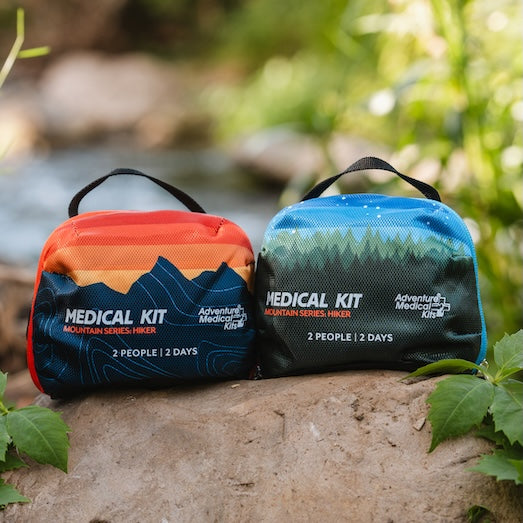By Christopher Van Tilburg, MD
After an all-night flight to Santiago, Chile, last year, I passed out a pack of AMK’s Fresh Bath Travel Wipes to everyone in our group right before hitting the tarmac. It was rejuvenating. And, the antibacterial properties actually do more than refresh, they function to prevent the most common travel related illness – travelers’ diarrhea.
The Risk of Travelers Diarrhea (TD) is higher than malaria: it is the most common affliction when heading overseas. According to the Centers for Disease Control, TD affects 30-50% of all travelers to high-risk areas. That’s 50,000 people per day and 10 million per year. TD is essentially food poisoning, which occurs when consuming food or water that is contaminated by bacteria, parasites, or viruses. It gets on your food or hands, and then down your gullet.`
The most common cause is E. coli, or one of several other bacteria like salmonella, or shigella. Bacteria account for up to 80% of all cases; parasites like Giardia and Entamoebae are less common. Asia, Central and South America and Africa pose the greatest risks, primarily because the food and water supplies in these regions and in developing countries as a whole are more likely to be contaminated.
Fortunately, most cases of TD are self-limiting, lasting one to four days. Warning signs of more serious infection include blood in the stool, high fever, persistent diarrhea, or signs of dehydration like dry lips and eyes, dizziness, and headache. Get medical help if any of these occur.
Prevention is straightforward but not completely effortless, especially when you want to sample local fare from street vendors in Shanghi or Oaxaca or when you have limited choices on overland treks in the Chile’s Altiplano. In those instances, follow these time-tested tips:
- Drink bottled, carbonated, or purified water. My favorite water purification tablet for travel is chlorine dioxide packaged in single-use foil pouches.
- Make sure fruits and vegetables are washed in potable water or peeled.
- Meats should be thoroughly cooked and served steaming hot.
- Hand hygiene is critical, and extremely easy: wash your hands after you go to the bathroom and before meals with a hand sanitizer.
- Milk should be pasteurized.
- Bismuth subsalicylate, AKA Pepto-Bismol, prevents TD; the dose is two tablets or two ounces four times daily while abroad. Make sure you have an ample supply with you.
Treatment for TD includes electrolyte solutions, a bland diet, medicines that slow diarrhea called antimotility agents, and antibiotics.
Electrolyte solutions, called Oral Rehydration Solution (ORS), contain glucose or rice-based carbohydrate, the electrolytes sodium and potassium, and citrate; they replace lost electrolytes, help speed absorption of water, and correct the acid imbalance caused by TD. Sport drinks work okay too, but you should dilute them by half with water. For a homemade solution, take one liter of water and add eight teaspoons of sugar or one cup of rice cereal, one teaspoon of salt and a half-cup of orange juice or half banana.
I recommend the BRAT diet of bland foods: bananas, rice, applesauce, and toast (I add rice too). All are foods that aren’t likely to cause further gastrointestinal distress.
A doctor should prescribe the anti-motility medicines and antibiotics — either in country or before you go — with instructions on when and how to use them. They are not always indicated and sometimes can be dangerous if not used properly.
Before you go, check out the New World Travel and Smart Travel Kits, which include CeraLyte® Oral Rehydration Salts, a premixed powder which provides the minerals and salts needed for replacing fluids lost from diarrhea. Carry a supply of Fresh Bath Travel Wipes and Adventure® Hand Sanitizer. Both contain the active ingredient benzalkonium chloride, a chemical that kills the same percentage of germs and bacteria as alcohol-based wipes and hand sanitizers do, but will not dry out the skin. Get a supply of Pepto-Bismol and chlorine dioxide water purification tablets. Visit your local Travel Clinic to see if antibiotics or antimotility medicines should be carried. And check the State Department, www.state.gov, to get a list of in-country medical clinics and hospitals.
Christopher Van Tilburg, MD, is the editor of Wilderness Medicine and the author of eight books on safety in the outdoors. His most recent book, Mountain Rescue Doctor: Wilderness Medicine in the Extremes of Nature, is now available in paperback.














